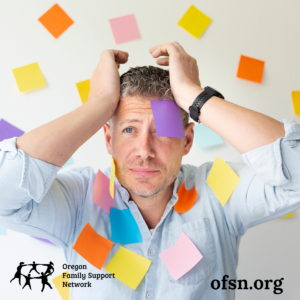The Labels We Carry: A Story About Listening Before We Judge
The Labels We Carry: A Story About Listening Before We Judge

This is a story about what happened when I chose to look past a label.
A Dad Named Caleb
Caleb is a single father raising his son, Brian. Brian has complex needs, both at school and at home. Not long ago, they relocated from a quiet, rural town to a bustling city. The change was jarring. Everything felt new, fast, and unfamiliar. They were trying to adjust—but not without challenges.
When their case came to our attention, the referral described Caleb as “dangerous.” Their home was labeled “unsafe.” The tone was clear: something was wrong here.
That description didn’t sit right with me. I knew there had to be more to the story.
I reached out to the Care Coordinator who had made the referral. They shared that Caleb often yells and bangs on the table when frustrated. They saw him as aggressive. Disengaged. A problem. Even a barrier to Brian’s progress.
But I wasn’t convinced. I needed to meet Caleb myself.
First Impressions
We arranged to meet at a local Starbucks. In hindsight, I think a burger joint over a soda would have felt more comfortable to him. That’s something I remembered for next time.
As we talked, Caleb got loud. His voice filled the room. I stayed present. I didn’t flinch. I leaned in.
Then I gently said:
“Caleb, I’ve noticed your voice gets pretty loud when we’re talking. I’m not sure how to interpret that. I can tell you’re passionate, and I really want to understand your communication style. Sometimes loud voices can come across as aggressive or unsafe.”
Caleb paused. He leaned back in his chair. Tears welled in his eyes.
“Oh my gosh, I’m sorry,” he said. “I have a hearing impairment. I don’t always know how loud I’m being. I’m not mad. I’m not aggressive. I just can’t hear.”
The Power of Perspective
I took a deep breath too. It hit me how quickly we jump to conclusions. How easy it is to misunderstand what we don’t take the time to learn.
It turns out, Brian isn’t aggressive either. He’s gentle. Sensitive. Kind.
I shared this with the team. When Brian heard how others had described him—as “scary”—he had tears in his eyes too. That’s not who he is. That’s not how he wants to be seen.
So we made a plan. We shared Caleb’s hearing impairment with the team. We built strategies to support clearer, more respectful communication. We created space for Caleb and Brian to be seen—and heard—for who they really are.
What If We Hadn’t Slowed Down?
Would Caleb and Brian have received the care they truly deserved? Or would more labels have been added—reinforcing a story that was never accurate to begin with?
This experience reminded me that every interaction is a choice point.
We can follow the system’s lead—or we can slow down.
We can rush to judgment—or we can get curious.
We can label—or we can listen.
Because real change begins not with labels, but with understanding.
That’s where healing starts. That’s how transformation happens.
